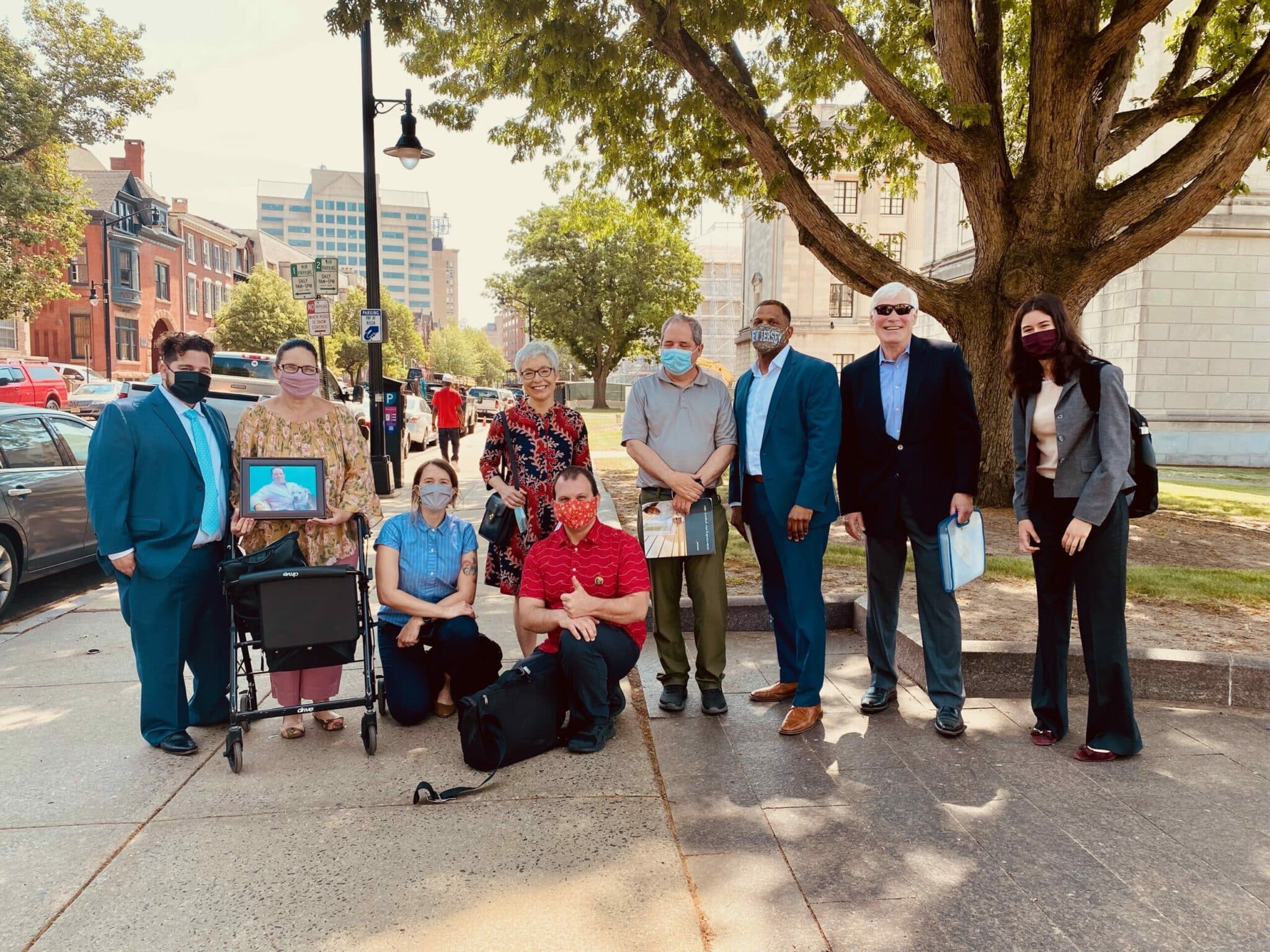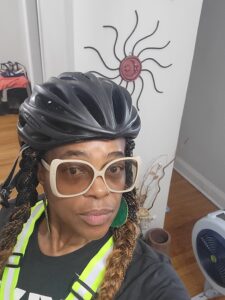On May 20th, the New Jersey Bike & Walk Coalition, along with our community partners, testified before the NJ Senate Law & Public Safety Committee, garnering unanimous support for a comprehensive Safe Passing law in what has been a decade-long pursuit.
An advocacy story for the records, the campaign evolved from a simple 3-foot bill for bicyclists in 2009 to a move-over/4-foot bill for bike riders, pedestrians and other “vulnerable road users” in 2014. In 2021, the bill now addresses both the speed and distance at which a vehicle can pass other road users. This win shows how building a broad coalition of support, adapting the campaign to the times and conditions, plus some determination and perseverance can eventually lead to success.
“ The bipartisan support for this bill, and the growing number of advocates, sends a clear signal that making this bill NJ State Law this year should be a priority after a year in which we saw increased use of our roads by people bicycling, walking, running, or scooting, and an increase in fatalities,” said Jim Hunt, NJBWC Safe Passing Campaign Coordinator.
Having led the NJBWC campaign for many years, Cyndi Steiner, former executive director, is excited to see it take a critical step forward.
“Congratulations to those who picked up the baton handed off by Janna Chernetz, Director of New Jersey Policy at TriState Transportation Campaign, Cathleen Lewis, formerly of AAA, and myself in moving this bill closer to a reality,” said Cyndi, who is now an NJBWC Advisory Board member.
Others who have tirelessly advocated for the bill include NJBWC Board Member Ray Cipollini, life partner of the late Oscar Zanoni Wendy Kukowski, former Morristown councilwoman Rebecca Feldman, high school junior and road racing champion Michaela Tsapatsaris, retired police lieutenant Craig Venson, Metuchen councilman Jason Delia, Bike JC’s Nathan Oliver, Tri-State Transportation Campaign’s Sonia Sczesna, John Boyle of the Bicycle Coalition of Greater Philadelphia, and Dave Wilson who designed the Team4NJ logo and bicycle apparel.
At the NJ State Senate committee hearing this week, Jim and others spoke to the importance of the bill, if enacted, providing three key things:
- Protection for all people using New Jersey roads. Far too many people –walking, riding a bicycle, in a wheelchair, on a scooter, a skateboard or on one of the new electric options– have had close calls with drivers in cars or trucks squeezing by – or worse. There have been too many serious injuries and too many deaths. Retired police lieutenant Craig Venson stated in his testimony that he has had more close calls riding a bike than in decades of law enforcement.
- Clear guidance for drivers of cars and trucks. As the pandemic has led to an increasing variety of road users on foot or on wheeled devices, drivers find themselves navigating a busier, puzzling landscape.
- Clear guidance for driver education and law enforcement. The bill fills a gap in Title 39 laws for safe passing. The code contains requirements for drivers passing other cars and trucks, to pass stopped emergency vehicles–even to protect horses and their riders. But there is no similar, detailed guidance for passing people not driving or riding in multi-ton vehicles. The bill provides those details, using familiar, measurable tools for law enforcement to mount an education campaign–and to determine a violation.
The bill advanced unanimously out of the Law & Public Safety Committee, whose members include Committee Chair Senator Linda Greenstein, Senator Anthony M. Bucco, Senator Joseph Cryan, Senator Declan O’Scanlon, Senator Nicholas Sacco and Senator Nia Gill. Senator Gill, who is an avid cyclist herself, stated the familiarity, and necessity, of waking up early to ride her bike to work during hours with less traffic. She has agreed to co-sponsor the bill.
What is a Safe Passing Law and why does New Jersey need one?
New Jersey is one of just eight states in the country that lacks safe passing legislation requiring motorists give adequate space when passing people bicycling, running, walking, scootering or in a wheelchair – although it does have other safe passing laws that apply to horses, emergency vehicles, and other cars/trucks. Not surprisingly, the League of American Bicyclists has given New Jersey a D grade for legislation that protects people walking and bicycling and the Federal Highway Administration designated New Jersey as a Pedestrian & Bicycle Safety Focus State. If passed, the Safe Passing bill would fill in the glaring blank in NJ’s safe passing laws to cover the broad range of vulnerable road users, including those growing in numbers such as scooters and e-bikes.
The bill has advanced at a much needed time as the pandemic has led to a bike boom and more people walking on New Jersey’s streets. Despite decreased traffic, 197 pedestrians and cyclists died in 2020 on state roadways alone, according to the New Jersey State Police Fatal Accident Investigation Unit.
What exactly does the bill do?
The law would require drivers to approach and pass vulnerable road users with “due caution.” The definition of “due caution” focuses on both slowing down (speed) and giving the other user plenty of space when passing (distance):
- If at all possible, the driver should change into a non-adjacent lane before getting closer than four feet.
- The driver should leave a reasonable, safe distance of at least four feet when approaching the protected users until they can pass safely.
- If those options are not possible, the driver must reduce their speed to 25 miles per hour and be prepared to stop.
Violating these guidelines will result in a driver receiving a fine of $500 and two motor vehicle points, if bodily harm is caused. If no injury occurs, the fine is $100.
The Path Forward
This puts us one step closer to meeting the urgent need for a law that protects all people on our roads! NJBWC will now be leading a campaign to move the bill through the Assembly and onto the floor of the State Legislature. Stay tuned for information on how to support the campaign.
Want to help? Visit our website and learn how you can volunteer for the Safe Passing Law campaign.















































































